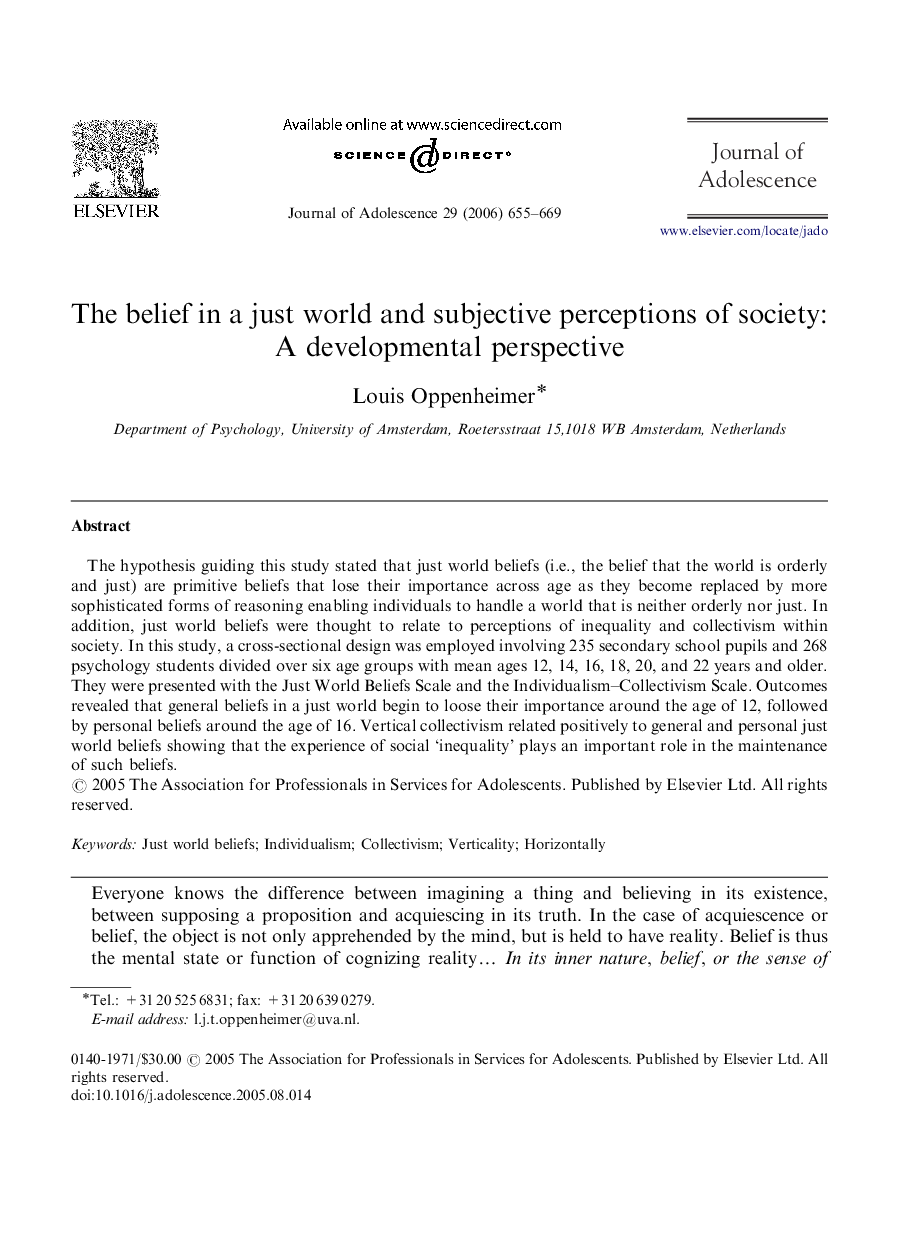| Article ID | Journal | Published Year | Pages | File Type |
|---|---|---|---|---|
| 881507 | Journal of Adolescence | 2006 | 15 Pages |
The hypothesis guiding this study stated that just world beliefs (i.e., the belief that the world is orderly and just) are primitive beliefs that lose their importance across age as they become replaced by more sophisticated forms of reasoning enabling individuals to handle a world that is neither orderly nor just. In addition, just world beliefs were thought to relate to perceptions of inequality and collectivism within society. In this study, a cross-sectional design was employed involving 235 secondary school pupils and 268 psychology students divided over six age groups with mean ages 12, 14, 16, 18, 20, and 22 years and older. They were presented with the Just World Beliefs Scale and the Individualism–Collectivism Scale. Outcomes revealed that general beliefs in a just world begin to loose their importance around the age of 12, followed by personal beliefs around the age of 16. Vertical collectivism related positively to general and personal just world beliefs showing that the experience of social ‘inequality’ plays an important role in the maintenance of such beliefs.
